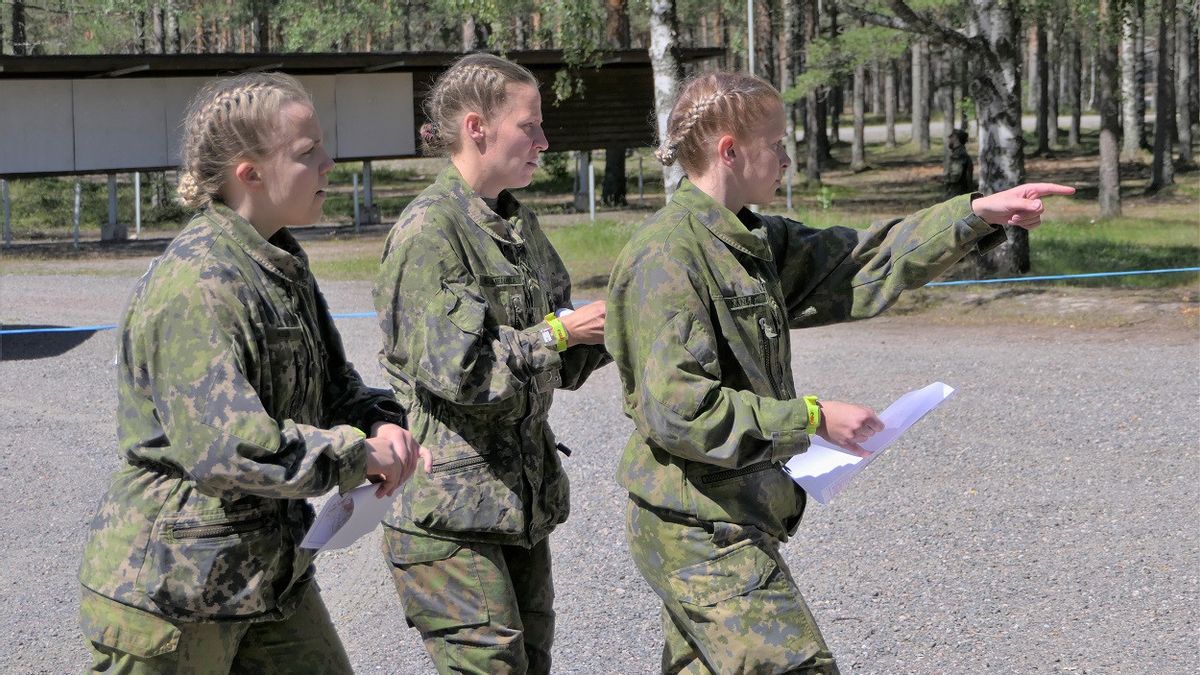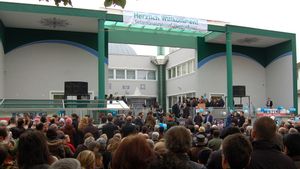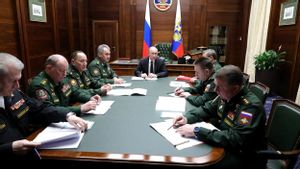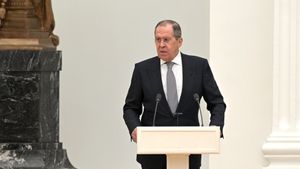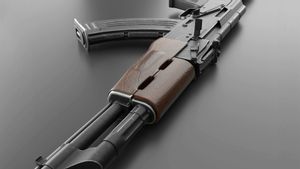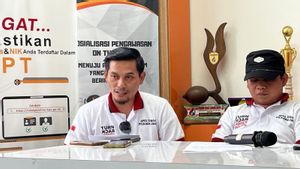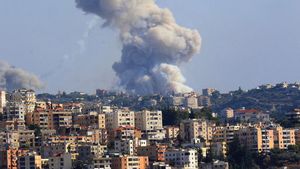JAKARTA - Just days after Russia invaded Ukraine on February 24, Finnish businessman Sissi Moberg is surfing the internet for courses that can teach him skills to defend Finland in the event of a military attack.
"I feel very sad for Ukraine. And then I started to worry about Finland and think what I can do about this," the 46-year-old mother of four told Reuters, as quoted on June 7.
Within a few weeks, Moberg was on a course devoted to reserves and learning how to use weapons and move on the battlefield.
The war in Ukraine has caused great alarm in Finland, which shares a 1.300 km (810 mi) border with Russia,, and during World War Two fought two wars against the Soviet Union which cost a tenth of its territory. About 100.000 Finns were killed.
Driven by the invasion, Finland decided on its decades-long domestic defense and security policy last month when it applied for membership in the NATO military alliance.
The Finnish Women's National Emergency Preparedness Association said demand for their courses had spiked since February.
"Right after the war broke out, our phones started ringing and emails came in and of course the demand for training increased," said Suvi Aksela, the association's head of communications.
This trend is in keeping with the long-standing Finnish tradition of wartime volunteering among women who, in contrast to men, are not required to perform military service.
About 19 percent of Finland's 13.000 professional military personnel are women, according to data from the military, although only 1-2 percent of conscripts are women.
Last week, Moberg returned again, this time on a survival training course organized by the Women's Preparedness Association at a military base in Hattula, 100km from Helsinki.
Over three days, she and more than 300 other women learned how to set up camp, start a fire in the rain, navigate through the forest and perform first aid.
"I'm one of the last people that my loved ones expect to participate in a course like this because I'm already a princess, a bit of a plush pant," Moberg said.
Another 500 women are on a waiting list, according to the Women's Preparedness Association, a volunteer group that holds annual training sessions for civilian women on skills needed in crisis situations. He received some public funding and was able to use military facilities and equipment for training.
Moberg is not alone in his concern or desire to help defend Finland. According to a poll published by the defense ministry last month, 85 percent of Finns now view Russia as having a negative effect on Finland's security, compared with 34 percent in 2007.
The same poll showed 83 percent of Finns think they should take up arms in the event of a military attack on their country, even if the outcome seems uncertain.
"This is a good country to live in and raise children. It's definitely worth defending," she said.
SEE ALSO:
"The will to defend our country is very strong in Finland," said another volunteer in the field, Satu Miettinen, who was raised by his grandmother, who volunteered for World War Two.
He taught Miettinen, as many other Finns had been taught too, that Moscow could invade Finland again.
"That's why I always had that suspicion," said the 36-year-old.
Moberg said he would undertake more preparedness courses to be prepared for a crisis, be it a major accident at a nuclear plant or a natural disaster.
"Courage does not mean not being afraid, but acting even so," she concluded.
The English, Chinese, Japanese, Arabic, and French versions are automatically generated by the AI. So there may still be inaccuracies in translating, please always see Indonesian as our main language. (system supported by DigitalSiber.id)
